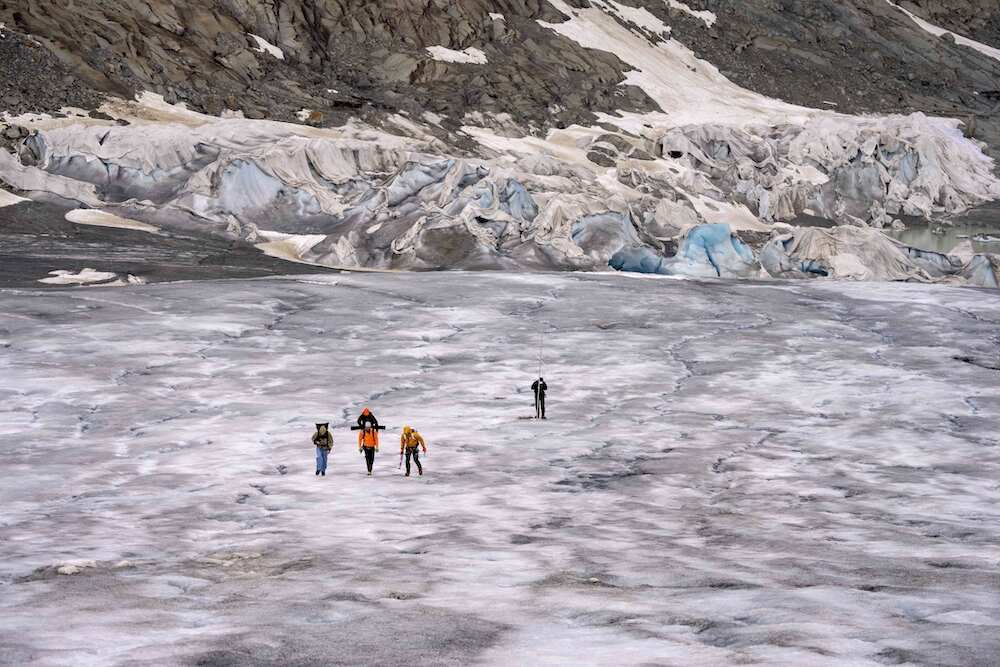الجمعة, يوليو 14th 2023

Global warming is causing the glaciers in the Alps to melt faster and faster. By the end of this century at the latest, there should be no more glaciers in the Alps below 3500 meters, said glaciology professor Olaf Eisen from Bremen. However, he assumes – especially after the hot summer of last year – that this process will happen much faster.
While the glaciers used to recede continuously, now – after extreme years like 2022 – holes are appearing in the glacier tongues.
“If the process continues like this, there could be no glacier left in Ötztal in 30 years,” he told Keystone SDA. The Ötztal is an area in Tyrol that is popular with mountaineers.
He gives the Alpine glaciers at altitudes of 4,000 or 4,500 meters about 100 more years before they are likely to have largely disappeared. The melting of the glaciers cannot be stopped at the moment, but it can be mitigated, according to the expert from the Alfred Wegener Institute at the Helmholtz Center for Polar and Marine Research.

Even if the current CO2 content of the atmosphere were to remain stable – which it is not – glaciers around the world would lose 50% of their mass by the year 2100. But if CO2 emissions continue at current levels, there is a risk a loss of 80% to 90%. If it were possible to reduce CO2 emissions to zero, the retreat of the glaciers could be reduced, according to Eisen.
If it were even possible to remove the CO2 from the atmosphere in the long term, the glaciers could grow again.
“But that’s not technically possible at the moment and it probably won’t be possible in the next 20 years either,” he said.
That’s why the glaciology professor says clearly: “We have to get out of fossil fuels so that we can stop the increase in CO2 in the atmosphere and reduce it again in the long term. If we start doing this in 2050, it will already be too late for the glaciers.”
This article was reprinted with permission from Keytone SDA.
